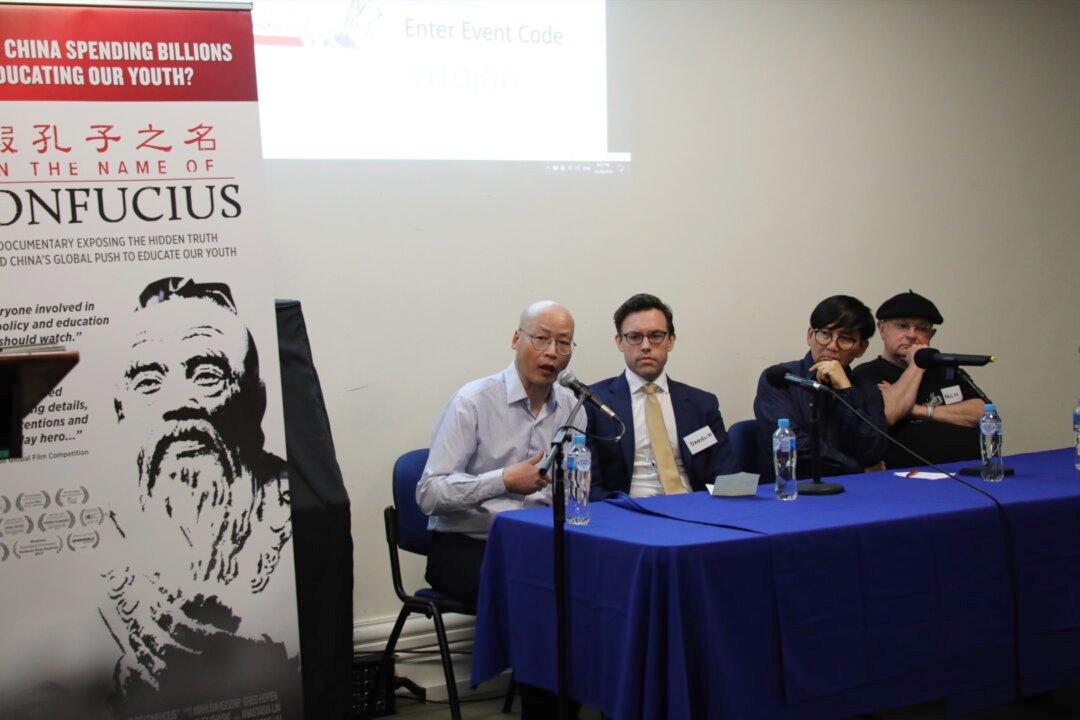MELBOURNE, Australia—On Thursday, Oct. 31, an investigative documentary highlighting the opaque workings of the controversial ‘Confucius Institutes’ (CI), was screened at the Scot’s Church in Melbourne’s CBD.
Co-hosted by the Australia-Hong Kong link and the Vietnamese Community of Australia, the screening of the award-winning documentary ‘In the Name of Confucius’ saw local Melburnians witness Sonia Zhao, a Chinese-born and former Mandarin teacher for CI in Canada, defect from the CCP sponsored program due to her contract conditions stating that teachers could not be Falun Gong practitioners or be associated with them.





